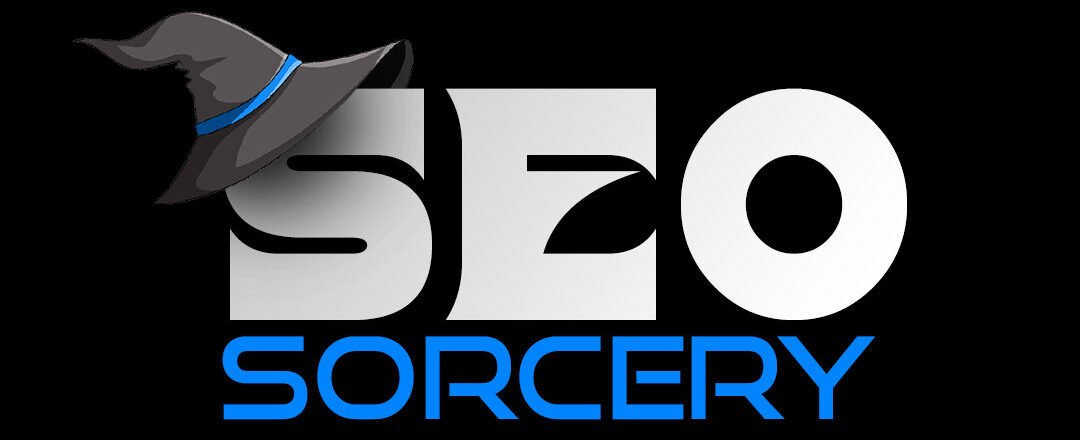Off-page SEO refers to the strategies and techniques used outside of your website to improve its search engine rankings. While on-page SEO focuses on optimizing the content and structure of your site, off-page SEO is all about building your site’s authority and credibility through external signals. This guide will walk you through the essential off-page SEO techniques that can help boost your website’s visibility and organic traffic.
Understanding the Importance of Off-Page SEO
Before diving into specific strategies, it’s crucial to understand why off-page SEO matters:
- Builds domain authority and credibility
- Improves search engine rankings
- Increases organic traffic
- Enhances brand awareness and visibility
- Creates valuable relationships within your industry
Now, let’s explore the key components of a successful off-page SEO strategy.
1. Link Building: The Foundation of Off-Page SEO
Link building remains one of the most critical aspects of off-page SEO. Search engines view high-quality backlinks as votes of confidence for your website, indicating that your content is valuable and trustworthy.
Types of Links
- Natural links: Earned organically when other sites link to your content
- Manual links: Acquired through deliberate link building efforts
- Self-created links: Generated through directory submissions, forum signatures, etc.
Link Building Strategies
a) Creating Link-Worthy Content
The first step in any link building campaign is to create content that others want to link to.
Steps to create link-worthy content:
- Conduct thorough research on your target audience’s interests and pain points
- Develop unique, high-quality content that addresses these needs
- Use various content formats (blog posts, infographics, videos, etc.)
- Ensure your content is well-researched, accurate, and up-to-date
- Make your content visually appealing and easy to read
b) Guest Blogging
Guest blogging involves writing articles for other websites in your industry, allowing you to reach new audiences and earn valuable backlinks.
Process for successful guest blogging:
- Identify relevant blogs in your niche
- Research their content and audience
- Pitch unique, valuable topic ideas
- Write high-quality, original content
- Include a natural link back to your website in the author bio or content body
- Promote your guest post on your social media channels
c) Broken Link Building
This strategy involves finding broken links on other websites and suggesting your content as a replacement.
Steps for broken link building:
- Use tools like Ahrefs or Check My Links to find broken links on relevant websites
- Create or identify content on your site that could replace the broken link
- Contact the website owner, informing them about the broken link and suggesting your content as a replacement
d) Skyscraper Technique
The Skyscraper Technique involves improving upon existing popular content and reaching out to sites that have linked to the original.
Process for implementing the Skyscraper Technique:
- Find popular content in your niche using tools like BuzzSumo
- Create a significantly better version of that content (more comprehensive, up-to-date, or better designed)
- Reach out to websites that have linked to the original content, introducing your improved version
e) Resource Page Link Building
Many websites have resource pages that link to helpful content in their industry. Getting your content featured on these pages can be a valuable source of backlinks.
Steps for resource page link building:
- Search for resource pages in your niche using Google search operators (e.g., “keyword” + “resources”)
- Evaluate the relevance and quality of the resource pages
- Create or identify content that would be a valuable addition to these pages
- Reach out to website owners with a personalized pitch explaining why your content would benefit their audience
2. Social Media Marketing
While social media signals aren’t direct ranking factors, a strong social media presence can indirectly impact your SEO by increasing brand awareness, driving traffic, and creating opportunities for link building.
Key Social Media Platforms for SEO
- YouTube
Social Media Optimization Strategies
- Create and optimize profiles on relevant platforms
- Share your content consistently across social channels
- Engage with your audience through comments, likes, and shares
- Use relevant hashtags to increase discoverability
- Encourage social sharing of your content by adding share buttons to your website
- Collaborate with influencers and industry leaders
- Run social media contests and promotions to increase engagement and reach
3. Influencer Marketing
Collaborating with influencers in your niche can help you reach new audiences, build trust, and earn valuable backlinks.
Steps to Implement an Influencer Marketing Strategy
- Identify relevant influencers in your industry using tools like BuzzSumo or Followerwonk
- Evaluate influencers based on their audience, engagement rates, and content quality
- Develop a personalized outreach strategy for each influencer
- Propose mutually beneficial collaboration ideas (guest posts, product reviews, social media mentions)
- Provide value to the influencer and their audience
- Track and measure the results of your influencer campaigns
4. Brand Mentions and Citations
Unlinked brand mentions can be valuable for your off-page SEO efforts. While they may not provide direct link juice, they contribute to your brand’s online presence and can lead to increased traffic and awareness.
Strategies for Leveraging Brand Mentions
- Set up Google Alerts or use social listening tools to monitor brand mentions
- Reach out to websites that have mentioned your brand and request a link when appropriate
- Engage with users who mention your brand on social media
- Create shareable content that encourages brand mentions
- Participate in industry events and conferences to increase brand visibility
5. Local SEO and Citations
For businesses with a physical presence, local SEO is crucial for attracting nearby customers. Citations (mentions of your business name, address, and phone number) play a significant role in local search rankings.
Local SEO Optimization Techniques
- Claim and optimize your Google My Business listing
- Ensure NAP (Name, Address, Phone) consistency across all online platforms
- Get listed in relevant local directories and citation sources
- Encourage and respond to customer reviews
- Create location-specific landing pages for multi-location businesses
- Use local schema markup on your website
- Participate in local events and community activities
6. Online Reputation Management
Your online reputation can significantly impact your off-page SEO efforts. Positive reviews and sentiment can improve your search rankings and click-through rates.
Strategies for Managing Your Online Reputation
- Monitor your brand mentions and reviews across the web
- Respond promptly and professionally to both positive and negative feedback
- Encourage satisfied customers to leave reviews on relevant platforms
- Address negative reviews and work to resolve customer issues
- Create content that showcases your brand’s positive attributes and achievements
- Engage in corporate social responsibility initiatives and share them online
7. Forum and Community Participation
Actively participating in relevant online forums and communities can help build your brand’s authority and create opportunities for natural link building.
Best Practices for Forum Participation
- Identify relevant forums and communities in your niche (e.g., Reddit, Quora, industry-specific forums)
- Create a complete and professional profile
- Contribute valuable, insightful answers and comments
- Avoid spammy or overly promotional content
- Include links to your website only when they genuinely add value to the conversation
- Build relationships with other community members
- Share your expertise consistently to establish yourself as an authority
8. Content Marketing and Distribution
Creating and distributing high-quality content is essential for attracting natural backlinks and improving your off-page SEO.
Content Marketing Strategies
- Develop a content calendar based on your target audience’s interests and search intent
- Create a mix of content types (blog posts, videos, infographics, podcasts, etc.)
- Optimize your content for search engines and user experience
- Promote your content through email marketing, social media, and outreach
- Repurpose successful content into different formats to maximize reach
- Collaborate with other content creators in your industry
- Use paid promotion channels (e.g., social media ads) to boost content visibility
9. Podcasting and Podcast Guesting
Podcasting can help you reach new audiences and earn valuable backlinks through show notes and mentions.
Steps to Leverage Podcasting for Off-Page SEO
- Start your own podcast or appear as a guest on relevant industry podcasts
- Optimize your podcast listings with relevant keywords and descriptions
- Create show notes with links back to your website
- Encourage listeners to visit your website for additional resources
- Promote podcast episodes on your social media channels and website
- Transcribe podcast episodes and publish them as blog posts for additional SEO benefits
10. Digital PR and Press Releases
Digital PR can help you earn high-quality backlinks from authoritative news sites and industry publications.
Digital PR Strategies
- Develop newsworthy stories about your brand, products, or industry
- Create data-driven content and original research
- Build relationships with journalists and industry publications
- Use tools like HARO (Help a Reporter Out) to find media opportunities
- Write and distribute press releases for significant company news or events
- Follow up with journalists and offer additional information or expert commentary
11. Webinars and Online Events
Hosting or participating in webinars and online events can help build your brand authority and create opportunities for backlinks.
Steps to Leverage Webinars for Off-Page SEO
- Identify topics of interest to your target audience
- Partner with other industry experts or influencers to co-host webinars
- Promote your webinars through various channels (email, social media, partner networks)
- Create landing pages for your webinars with relevant keywords and information
- Offer valuable content and resources during the webinar
- Follow up with attendees and provide additional resources on your website
- Repurpose webinar content into blog posts, videos, or podcasts
12. Competitor Analysis
Analyzing your competitors’ off-page SEO strategies can provide valuable insights and opportunities for improvement.
Steps for Competitive Analysis
- Identify your main competitors in search results
- Use tools like Ahrefs or SEMrush to analyze their backlink profiles
- Identify high-quality websites linking to your competitors
- Look for guest posting opportunities on sites where competitors have published
- Analyze their social media presence and engagement strategies
- Identify content gaps that you can fill with your own high-quality resources
13. Monitoring and Measuring Off-Page SEO Success
To ensure the effectiveness of your off-page SEO efforts, it’s crucial to track and measure your progress regularly.
Key Metrics to Monitor
- Domain Authority and Page Authority
- Number and quality of backlinks
- Referring domains
- Organic search traffic
- Keyword rankings
- Brand mentions and sentiment
- Social media engagement and reach
- Conversion rates from organic traffic
Tools for Monitoring Off-Page SEO
- Google Analytics
- Google Search Console
- Ahrefs
- SEMrush
- Moz Pro
- BuzzSumo
- Brand24 or Mention (for brand monitoring)
14. Staying Up-to-Date with Off-Page SEO Trends
The world of SEO is constantly evolving, and it’s essential to stay informed about the latest trends and best practices.
Strategies for Staying Informed
- Follow reputable SEO blogs and news sites (e.g., Search Engine Journal, Moz Blog, Search Engine Land)
- Attend industry conferences and webinars
- Participate in SEO forums and communities
- Experiment with new techniques and tools
- Network with other SEO professionals
- Stay updated on Google’s algorithm changes and official announcements
Conclusion: Building a Comprehensive Off-Page SEO Strategy
Effective off-page SEO requires a multi-faceted approach that combines various strategies to build your website’s authority, credibility, and visibility in search results. By implementing the techniques outlined in this guide, you can create a robust off-page SEO strategy that complements your on-page efforts and drives sustainable organic growth for your website.
Key takeaways for off-page SEO success:
- Focus on building high-quality, relevant backlinks through various strategies
- Leverage social media to increase brand awareness and engagement
- Collaborate with influencers and industry experts to expand your reach
- Manage your online reputation and encourage positive reviews
- Create and distribute valuable content across multiple channels
- Participate in industry forums and communities to establish authority
- Optimize for local SEO if you have a physical business location
- Regularly monitor and analyze your off-page SEO performance
- Stay informed about the latest trends and algorithm updates
Remember that off-page SEO is an ongoing process that requires patience, consistency, and adaptation. By continually refining your strategies and focusing on providing value to your audience, you’ll be well-positioned to improve your search engine rankings and achieve long-term success in the digital landscape.


